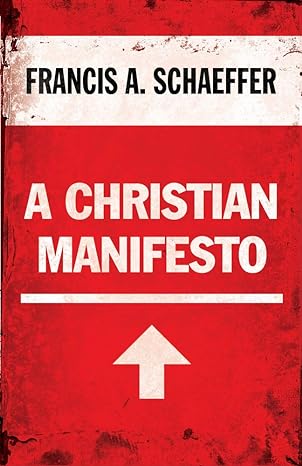A Brief Book Summary from Books At a Glance
by Steve West
About the Author
Francis Schaeffer was one of the most influential Christian apologists in Western history. He emphasized the importance of worldview thinking from a Christian perspective. Schaeffer called evangelicals to rigorous philosophical and theological thinking, as well as social and cultural engagement.
Table of Contents
1 The Abolition of Truth and Morality
2 Foundations for Faith and Freedom
3 The Destruction of Faith and Freedom
4 The Humanist Religion
5 Revival, Revolution, and Reform
6 An Open Window
7 The Limits of Civil Obedience
8 The Use of Civil Disobedience
9 The Use of Force
10 By Teaching, By Life, By Action
Summary
Chapter 1: The Abolition of Truth and Morality
Christian engagement with political and ethical issues has been too piecemeal and has failed to see the greater worldview realities that are responsible for the seismic shifts taking place in society. Our culture is moving away from the Christian worldview and towards an atheistic, materialist one. These worldviews are irreconcilable, and they inevitably produce different social and legal outcomes. Pietism focused on spirituality to the neglect of the physical, and this was a great mistake. Christianity is not merely the truth about doctrines and morality, but it is the total, comprehensive Truth of reality. The way that the Christian worldview and naturalism understand the world are diametrical opposites and cannot be unified. Christians should be humanists in a proper theological sense, but secular humanism is completely contradictory to Scripture. Man is not the measure of all things, and when people believe that they are, then human nature, society, and law will all be misunderstood and suffer. In atheism, there are no grounds for human rights or dignity. It is only in the biblical perspective that human rights can be justified, the social order vindicated, and principles for the proper order and function of the nation be implemented. No human law is valid apart from its basis on God’s law, and neither can laws be good if they violate the content of God’s laws. The Bible reveals what we need to know for salvation, but also what we need in order for society to work well.
Chapter 2: Foundations for Faith and Freedom
The Founding Fathers understood the relationship between worldview and law. Without a supreme, divine lawgiver, human beings do not have inalienable rights. As the Founding Fathers built the institutions and wrote the documents of the nation, they knew that God was necessary for virtue and liberty to exist in their republic. Without God, they knew the nation would be ruled by tyrants. In America, the Constitutional separation of church and state was never intended to fully separate religion and politics, but rather was designed to ensure that the state could not impose one type of national church over all of its citizens. Far from being anti-religion, the Founding Fathers encouraged religion and promoted religion in conjunction with the state. They knew that both God’s general and special revelation were indispensable for law, social order, and human rights and freedoms. . . .
[To continue reading this summary, please see below....]The remainder of this article is premium content. Become a member to continue reading.
Already have an account? Sign In
